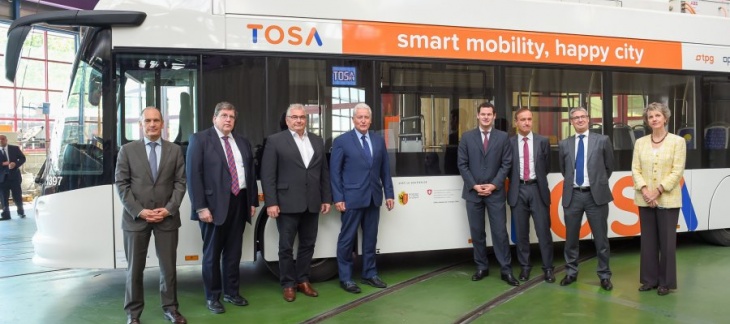
It only took two years – from the launch of the technical and economic feasibility study to the full implementation of the transport system – for the TOSA project to become a reality and be unveiled at the inauguration of the International Association of Public Transport exhibition, held in Geneva on 26 May 2013. During this event, a first pilot bus was commissioned on a 3 km stretch between Geneva airport and the Palexpo exhibition centre, acting mainly as a shuttle bus for Palexpo visitors. This was followed by a year of tests during which a TOSA prototype reliably covered over 8,000 km, three to four days per week, connecting to the feeding stations over 4,200 times without encountering any major difficulties. This phase successfully demonstrated how well the prototype worked in an open environment while subject to all of the usual operational constraints and climate conditions experienced during the day-to-day operation of a bus. It also proved that the technology was ready for operational roll-out. In 2015, the consortium was expanded to include various universities (EPFL, HE-Arc, HEPIA) and suppliers, plus the Federal Department of the Environment, Transport, Energy and Communications (DETEC).